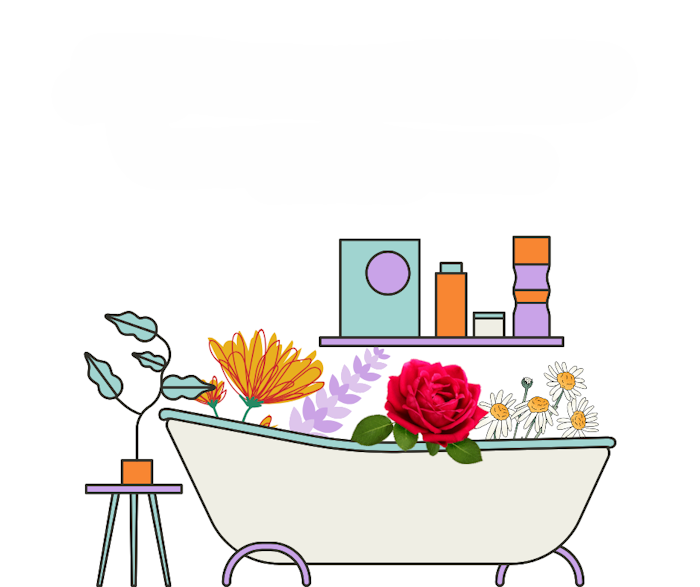The Rejuvenating Experience of an Herbal Tea Bath
- Jean McCabe
- Jul 3, 2025
- 3 min read
Indulge in Nature's Healing Properties
In today's fast-paced world, where stress and fatigue have become part of our daily lives, the appeal of an herbal tea bath offers a serene escape into nature's healing embrace. An herbal tea bath is an ancient practice that combines the therapeutic benefits of herbs with the soothing properties of a warm bath, creating a ritual that revitalizes the mind, body, and spirit.
The Origins and Tradition
The tradition of herbal baths dates back centuries and has been practiced by various cultures around the globe. The ancient Egyptians, Greeks, and Romans were known to indulge in baths infused with herbs to promote relaxation and remedy various ailments. Similarly, in traditional Chinese medicine and Ayurveda, herbal baths have been used to balance the body's energies and treat skin conditions, muscle pain, and respiratory issues.

Benefits of Herbal Tea Baths
The benefits of herbal tea baths are manifold, as they offer a holistic approach to wellness.
Relaxation and Stress Relief
One of the most significant advantages of an herbal tea bath is its ability to induce deep relaxation. The aromatic properties of herbs such as:
• Lavender: Excellent for aching muscles, relaxation, and stress relief.
• Rose: Mood boosting, promotes relaxation while reducing anxiety. Rose petals have a soothing and calming effect on your skin too.
• Chamomile: Calms the mind and promotes restful sleep. Relaxes and soothes muscles and treats skin irritations.
Skin Nourishment
Herbal tea baths can greatly benefit the skin, use these herbs:
• Calendula: Soothes inflammations, insect bites, rashes, and it is great for sensitive skin.
• Chamomile: Soothes muscles, treats skin irritations, and promotes restful sleep.
• Peppermint: Freshens the skin, it opens the pores releasing dirt and toxins, then allows the absorption of the beneficial herbal properties.
Respiratory Health
To help relieve congestion and improve respiratory function use these herbs:
• Eucalyptus: Helps loosen mucus, it is antibacterial, anti-fungal, anti- inflammatory. It is an expectorant and decongestant.
• Peppermint: It is an expectorant and is antibacterial.
• Lavender: Not only is it great for relieving stress, anxiety and insomnia, it supports the respiratory system being antiseptic and antibacterial.
How to Prepare an Herbal Tea Bath
Creating an herbal tea bath at home is simple and requires a few basic steps.
Selecting the Herbs
Choose herbs based on the desired effect. You can choose herbs from any of the categories above, as you can see some do double duty. You can also make up your own blend of herbs.
You can prepare an herbal tea bath in two different ways.
1) Instructions:
Step 1: Add your herbs to a muslin bag, an old clean sock, or a muslin or cotton cloth that you tie up. I like to make several up at a time and have them ready to use. I store them in a jar.
Step 2: Hang your tea bag on the faucet so the water flows over it while the water is filling up the bathtub.
Step 3: Place the tea bag in the bathtub.
Step 4: Soak in the herbal bath for 20 to 30 minutes. Breathe deeply, relax, and let the healing properties of the herbs work their magic.
You can also choose to follow these instructions.
2) Instructions:
Step 1: Boil water and pour it over the selected herbs.
Step 2: Let the herbs steep for about 15-20 minutes to release their essential oils and beneficial compounds.
Step 3: Strain the herbal infusion and add it to the bathwater.
Step 4: Fill the bathtub with warm water.
Step 5: Add the strained herbal infusion to the bathwater.
Step 6: Stir the water to ensure the herbal infusion is evenly distributed.
Step 7: Soak in the herbal bath for 20 to 30 minutes. Breathe deeply, relax, and let the healing properties of the herbs work their magic.
Enhancing Your Herbal Tea Bath Experience
To make your herbal tea bath even more enjoyable, consider adding the following elements:
Essential Oils: A few drops of essential oils, that are diluted in an unscented liquid soap (1), like lavender, rose, or eucalyptus can enhance the aromatic experience and provide additional therapeutic benefits.
Bath Salts: Adding Epsom salts or Himalayan pink salts can help soothe sore muscles and detoxify the body.
Music: Create a calming ambiance with soothing music to enhance relaxation.
Hydration: Keep a glass of water or herbal tea nearby to stay hydrated during your bath.
Conclusion
An herbal tea bath is a delightful way to incorporate the healing properties of nature into your self-care routine. Whether you seek relaxation, skin nourishment, or respiratory relief, the right combination of herbs can transform your bath into a therapeutic sanctuary. Embrace the ancient wisdom of herbal baths and transform your bath time into a holistic and rejuvenating experience.




Comments